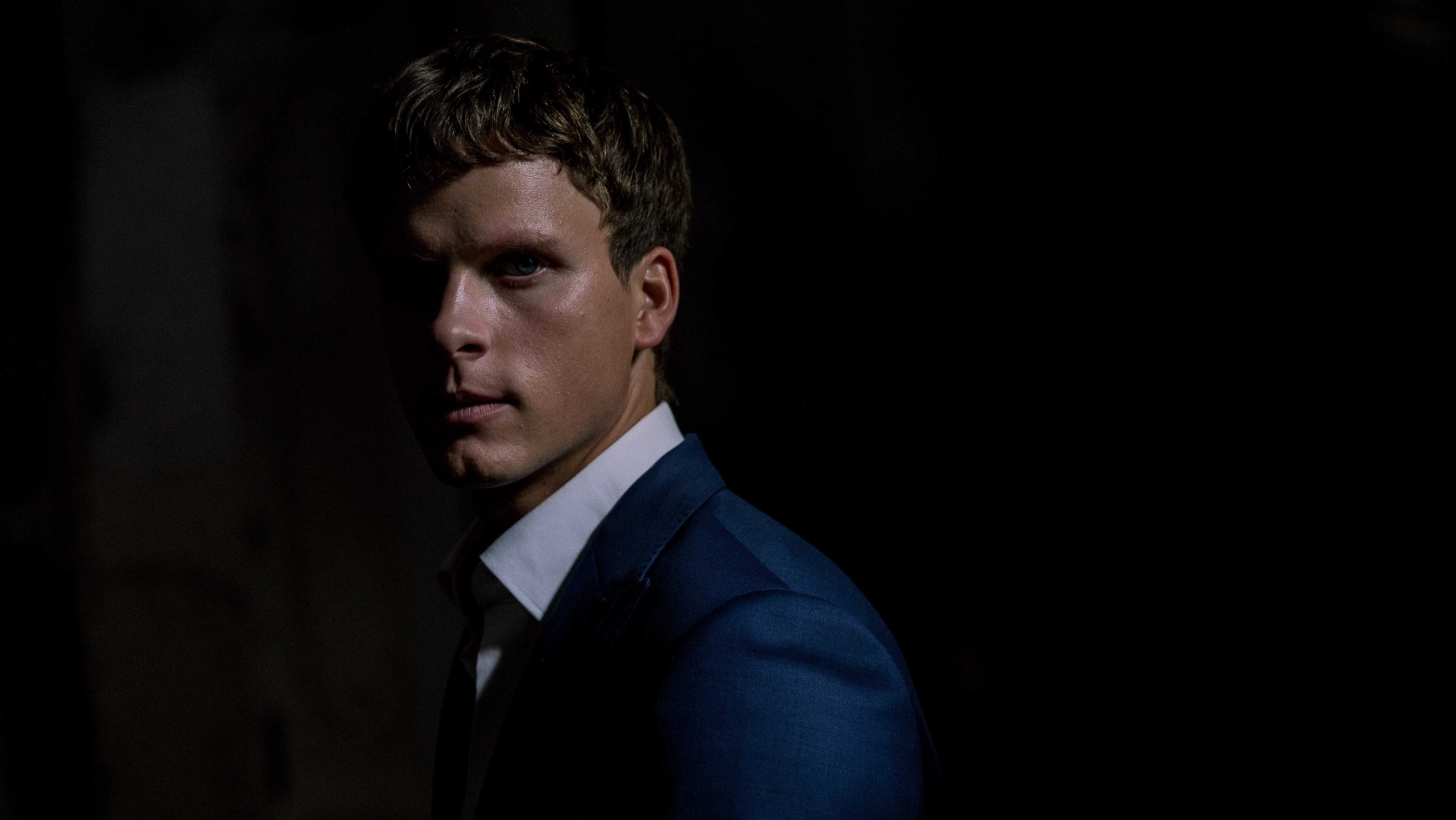Mipcom: Adam Pålsson, Paul Leander-Engström Talk ‘Moscow Noir’
By John Hopewell
LOS ANGELES (Variety.com) – CANNES — There’s a scene in “Moscow Noir” (“Dirigenten”), the brand new Studiocanal series screening Tuesday at Mipcom, where Tom, a rudderless and emotionally damaged stock market trader, visits an defunct inland oil field, the motionless rigs like stranded big metal birds in a field in pastoral Russia. The cameras cut from a shot of his hire car speeding down a dirt track to a medium shot as he gets out of the car. Then there’s a close up of a dog, an establishing shot from some height of Tom and a guard, the oil field behind; a closer up two-shot, then a one shot of the guard, a two-shot and a return to the establishing shot of Tom, the guard and the oil rigs.
“In Russia, the only constant is chaos,” says one Russian character in the movie. Co-written by Alesky Bardy, directed by Mikael Håfström, whose credits include Netflix’s “Bloodline,” “Moscow Noir” is set in 1999 Moscow as Tom attempts to make a large buck for a bankrupt acquaintance, persuading Rusoil to buy up the company owning the oil field. For international series, there’s a sense that the land and setting of “Moscow Noir” is uncharted land: You never know quite what will happen next, which is caught in series’ nervy, unpredictable direction, sudden slaughter and shards of surrealism as Tom’s ploy sparks a battle between warring oligarchs at a time in Russia where – one suspects the series will confirm – not only the nation’s riches but many people were up for grabs.
But it is this very unpredictability which of course is one of the series’ main attractions. Produced by Piodor Gustafsson at Sweden’s Black Spark Films and shepherded by Rola Bauer and Jonas Bauer on behalf of Studiocanal for Scandinavia’s TV4/CMore and Poland’s NC+, “Moscow Noir” is based on the novel by Swedish authors Camilla Grebe and PaulLeander-Engström. Variety chatted to the series’s star Adam Pålsson (“The Bridge”) and Leander-Engström at .
The series’ English-language title, “Moscow Noir,” is almost a pointer that one of the new things the series will bring to the table is the Russian variant on noirness. But would you agree?
Leander-Engström: To my mind, there’s been very little done in series on his period,. especially the land grab, the asset grabs which took place at the turn of the century. That’s really what we’re portraying. In terms of series, “Moscow Noir” is revolutionary in that aspect.
One of the characters says that chaos is the natural state of Russia. The shooting style is highly nervy, unpredictable, cutting from expensive shots to sudden close-ups, or on movement. It seems to capture the uncertainty of the time and also the emotional turmoil of Tom, who’s going through a long crisis.
Leander-Engström: Your saying the style of the photography goes very well with the subject? Yes, chaos is one constant. that was true for the time. the daily questions are whether Yeltsin was still alive, has there been a terrorist attack, or a power grab by one of the oligarchs. Things could change at the spur of the moment. So, yes, that’s very true.
Pålsson: The director of photography used to be a steady cam operator. We shot with two cameras all the time. The second camera unit head had the chance to be more artistic. They were really good at moving the camera, more than I’ve experienced before in film or TV. A lot of emphasis was placed on lighting. One crew member’s only job was to control the smoke. The director, Mikael Halfstrom, is hugely experienced, very confident.
In terms of your character, Adam, Tom is wounded, traumatized, though we’re not quite certain from what at the beginning if the series. It’s as if he’s searching for a set of values. and a place in the world, almost like Russia, asking does he really have any ethics or is he just a business man…
Pålsson: He’s asking that question to himself throughout the series. He has close friends who are in trouble. He has to ask himself: ’Who am I?’ Will he help his friends or just look out for himself.
Leander-Engström: When his friends, Freddie and his wife, ask: ’Can you help us out?’ he agrees reluctantly, but then realizes he can put two and two together and make something of the situation. But once he goes to an oligarch and says he can out together a deal, he knows there’s no way back. The first deaths he hopes are merely coincidental but after a while he realizes there’s more to them. We place him in a hugely difficult position.
Pålsson: But his relationship to Freddie, his wife and their daughter also gives his life a meaning in a deeper sense.
Do you see one opportunity for Swedish scripted being to diversify away from the standard tropes of Nordic Noir into more political thriller and settings outside Scandinavia?
Leander-Engström: Yes. We thought readers in Sweden were getting tired of reading about another drunk Swedish police commissioner. We got good reviews. Then, shortly afterwards, other books came out which did the same thing. We hope Sweden can produce more political suspense thrillers.

